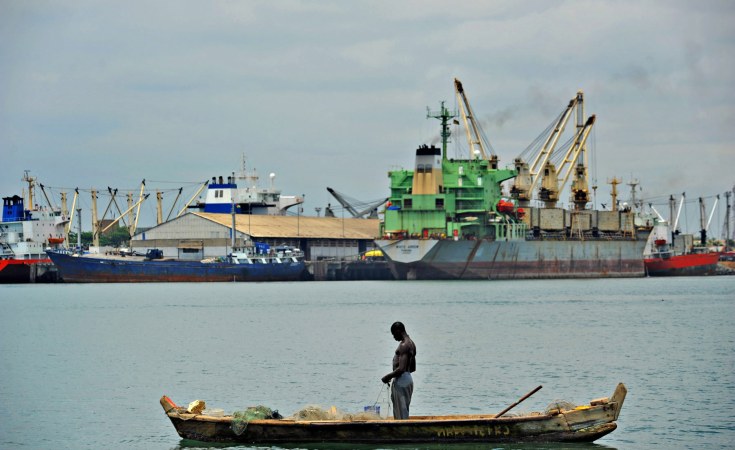Twelve years ago, the influential Economist magazine described Africa as "the hopeless continent". Last year the same publication ran the headline: "Africa rising: the hopeful continent", noting that some of the fastest-growing economies in the world are in Africa.
According to the 2012 Africa Progress Report, seven in every 10 people on the continent live in countries that have enjoyed an economic boom – growth rates averaging in excess of four percent for the past decade. From 2005 to 2009, Ethiopia recorded higher growth than China, and Uganda outperformed India.
The World Bank's most recent estimates suggest that the number of poor people in the sub-Sahara region fell by around nine million between 2005 and 2008.
While there is clear evidence that in the past decade the continent has made significant gains in areas such as reducing infant mortality, curbing the spread of HIV/Aids, tuberculosis and malaria, and promoting economic growth, the findings of the report show that for the vast majority of Africans, life on the "hopeful continent" remains a daily challenge.
Entitled, "Jobs Justice And Equity – Seizing Opportunities in Times of Global Change", the 2012 Africa Progress Report (APR) says that after a decade of "buoyant growth", wealth disparities within and across African countries are "increasingly visible", with almost half of Africans still living on less than U.S.$1.25 a day.
"The current pattern of trickle-down growth is leaving too many people in poverty, too many children hungry and too many young people without jobs," says the APR. It notes that governments are "failing to convert the rising tide of wealth into opportunities for their most marginalised citizens" and that unequal access to health, education, water and sanitation is "reinforcing wider inequalities".
The report also finds that smallholder agriculture has not been part of the growth surge, leaving rural populations trapped in poverty and thus vulnerable to disease and marginalisation.
The Africa Progress Panel – a group of 10 individuals chaired by the former United Nations secretary-general Kofi Annan, publishes the APR. Other members include Mozambique humanitarian and former South African first lady Graca Machel, former Nigerian president Olusegun Obasanjo, Ivorian businessman Tidjane Thiam, Bangladesh Nobel laureate Muhammad Yunus, French economist Michel Camdessus and musician and activist Bob Geldof.
The panel says it chose to highlight justice and equity in the 2012 report because "they are missing from the lives of too many Africans, making the present growth socially unsustainable".
Nonetheless, the continent's economic growth has helped it make significant progress towards the United Nations Millennium Development Goal (MDG) targets. In the past decade, the number of children who die before their fifth birthday has fallen by half from the number who died before the age of five in the decade from 1990 to 2000.
According to the APR, measured by the rate of reduction in child deaths, six of the 14 best-performing countries in the world – including Ethiopia, Ghana, Malawi and Niger – are in Africa. The number of out-of-school children has fallen by 13 million.
But when it comes to access to safe drinking water, the continent is the only region not on track to meet the MDG target. Some 340 million Africans do not have access to clean water.
The report notes that while economic growth has reduced poverty in Africa, it has made a much smaller impact than anticipated. In fact, Africa had a larger share of the world's poor in 2008 than it did a decade earlier.
At the start of its "growth surge" in 1999, says the report, Africa accounted for 21 percent of the world's poverty. By 2008, that share had reached 29 percent.
Some of the countries with the strongest economic growth have done little to reduce poverty says the APR, citing two examples:
In Mozambique, household survey evidence showed no decrease in national poverty from 2002 to 2008.
In Tanzania, one of the world's fastest-growing economies, income poverty fell only two percent (35 percent to 33 percent) from 2000 to 2007, according to household budget surveys. This amounts to an additional one million Tanzanians living below the poverty line.
The wealth gap in Africa is among the biggest in the world. The Gini co-efficient, an index that measures inequality, shows that in China, where political leaders have identified rising inequality as a threat to social stability and future growth, the Gini index is 42. In Africa, there are 24 countries with higher inequality scores than China. In Mozambique, Kenya and Zambia, the Gini index is between 45 and 55, while in Botswana and South Africa it is over 60.
In order to reduce this potentially destabilizing and destructive inequality, the Africa Progress Panel recommends public policy action on two fronts: "First, governments need to mobilise revenues from growth and invest those revenues in the basic services and economic infrastructure that offer poor people greater opportunities."
And secondly, "governments need to foster an environment that enables the creation of jobs and more resilient livelihoods, so that poor people can contribute to economic growth, 'produce' their way out of poverty and secure a greater share of the benefits from growth."


